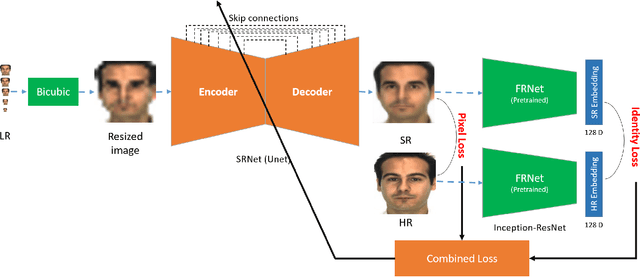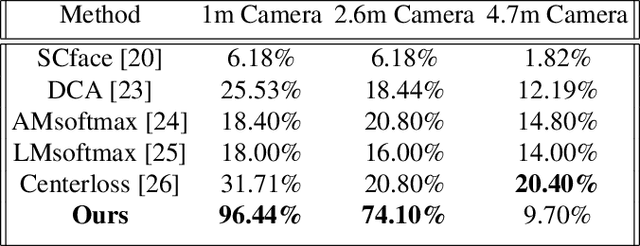IPU-Net: Multi Scale Identity-Preserved U-Net for Low Resolution Face Recognition
Paper and Code
Oct 23, 2020



State-of-the-art deep neural network models have reached near perfect face recognition accuracy rates on controlled high resolution face images. However, their performance is drastically degraded when they are tested with very low resolution face images. This is particularly critical in surveillance systems, where a low resolution probe image is to be matched with high resolution gallery images. Super resolution techniques aim at producing high resolution face images from low resolution counterparts. While they are capable of reconstructing images that are visually appealing, the identity-related information is not preserved. Here, we propose an identity-preserved U-Net which is capable of super-resolving very low resolution faces to their high resolution counterparts while preserving identity-related information. We achieve this by training a U-Net with a combination of a reconstruction and an identity-preserving loss, on multi-scale low resolution conditions. Extensive quantitative evaluations of our proposed model demonstrated that it outperforms competing super resolution and low resolution face recognition methods on natural and artificial low resolution face data sets and even unseen identities.
 Add to Chrome
Add to Chrome Add to Firefox
Add to Firefox Add to Edge
Add to Edge